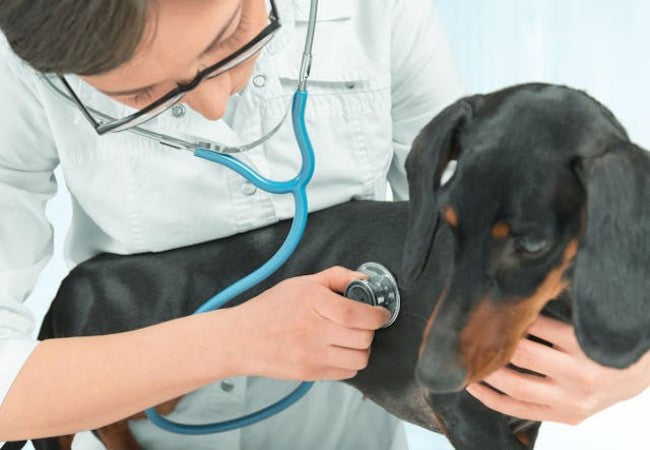Carnitine Deficiency in Dogs: A 2025 Vet-Approved Guide to Causes, Symptoms & Treatment🐶💔

In this article
Carnitine Deficiency in Dogs: A 2025 Vet-Approved Guide to Causes, Symptoms & Treatment🐶💔
By Dr. Duncan Houston BVSc
L-carnitine is an essential nutrient that plays a pivotal role in energy production, particularly in the heart and skeletal muscles. In dogs, a deficiency in L-carnitine can lead to significant health issues, most notably dilated cardiomyopathy (DCM). Understanding the causes, recognizing the symptoms, and knowing the treatment options are crucial for dog owners to ensure their pets' heart health.
🧬 What is Carnitine and Why is it Important?
Carnitine is a naturally occurring compound synthesized from the amino acids lysine and methionine. It facilitates the transport of long-chain fatty acids into the mitochondria, where they are oxidized to produce energy. This process is vital for the proper functioning of the heart and skeletal muscles, which have high energy demands.
While dogs can synthesize carnitine, certain factors can lead to a deficiency, impacting their overall health and well-being.
⚠️ Causes and Risk Factors
The exact causes of carnitine deficiency in dogs are not fully understood. However, several factors have been identified:
- Genetic Predisposition: Certain breeds, including Boxers, Doberman Pinschers, Great Danes, Irish Wolfhounds, and other large breeds, are more susceptible to carnitine deficiency.
- Dietary Factors: Diets low in animal proteins may lack sufficient carnitine, especially in dogs with higher energy requirements.
- Medical Conditions: Some diseases and medications can interfere with carnitine absorption or synthesis.
🩺 Recognizing the Symptoms
Symptoms of carnitine deficiency can vary but often include:
- Weakness and lethargy
- Exercise intolerance
- Muscle pain
- Enlarged heart (dilated cardiomyopathy)
- Heart failure symptoms, such as coughing and difficulty breathing
These symptoms can be subtle initially but may progress over time, leading to severe health complications.
🔬 Diagnosis
Diagnosing carnitine deficiency involves several steps:
- Medical History and Physical Examination: Assessing the dog's breed, diet, and clinical signs.
- Diagnostic Tests: Blood tests, echocardiograms, and electrocardiograms (EKG) to evaluate heart function.
- Muscle Biopsy: Measuring carnitine levels in heart muscle tissue, though this is invasive and not commonly performed.
It's important to note that a definitive diagnosis can be challenging, and veterinarians often rely on a combination of clinical signs and diagnostic tests.
💊 Treatment Options
Treatment focuses on supplementing L-carnitine and managing symptoms:
- L-Carnitine Supplementation: Administered orally, with dosages determined by the veterinarian based on the dog's size and condition.
- Dietary Adjustments: Incorporating high-quality animal proteins to ensure adequate carnitine intake.
- Medications: Managing heart failure symptoms with appropriate medications as prescribed by the veterinarian.
Regular monitoring through follow-up appointments and diagnostic tests is essential to assess the effectiveness of the treatment plan.
🛡️ Prevention and Management
While not all cases are preventable, certain measures can help manage and reduce the risk:
- Breed Awareness: Owners of predisposed breeds should be vigilant for early signs of deficiency.
- Balanced Diet: Feeding a diet rich in animal proteins to support natural carnitine levels.
- Regular Veterinary Check-ups: Routine examinations to monitor heart health, especially in at-risk breeds.
Early detection and intervention can significantly improve outcomes for dogs with carnitine deficiency.
📱 Support and Resources
For additional support and information:
- Ask A Vet: Access professional veterinary advice through the Ask A Vet platform.
- Download the Ask A Vet App: For quick access to veterinary support, download the Ask A Vet app.
Early diagnosis and appropriate treatment can significantly improve your dog's quality of life.
🐾 For more expert advice and pet care tips, visit AskAVet.com.






